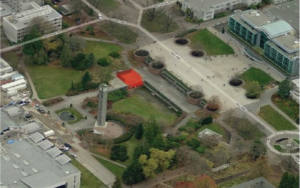June 19, 2015
To: All UBC Faculty and Staff
As we approach National Aboriginal Day this weekend, and the start of our Centennial year this fall, we wish to draw your attention to some Aboriginal engagement initiatives at UBC.
Earlier this month, the Truth and Reconciliation Commission of Canada (TRC) released its Final Report that included 94 recommendations for further action. Many addressed education and some specifically addressed higher education. To see the report, visit here.
The TRC was formed in 2008 as a result of the largest class-action law suit in Canadian history. Charged with gathering testimony and records relating to the Indian Residential School system that operated in Canada from the late nineteenth century until 1996, the Commission documented the deaths and widespread systematic abuse of Aboriginal children, many of whom had been forcibly removed from their homes and communities without their parents’ consent.
Many of the TRC’s recommendations address areas in which UBC has been active for years. In addition to long-standing programs, UBC has formed an Aboriginal Strategic Plan, expanded the number of Indigenous faculty, increased Aboriginal enrolment to over a thousand students, and added significant new programs and strengthened others across many disciplines.
Indian Residential School History and Dialogue Centre
In close collaboration with the Indian Residential School Survivors Society, the TRC and others, UBC is advancing plans to construct an Indian Residential School History and Dialogue Centre at the centre of the Vancouver campus. The design will accommodate future construction of a memorial sculpture and revitalize the landscaping of the adjacent Library Gardens.
The Dialogue Centre will offer a highly visible location for understanding Indian residential school history and for re-thinking the relationship between Aboriginal people and others in Canadian society. In addition to being an on-campus meeting place for community members and scholars, it will be a place for accessing records, preserving cultural memory, and advancing thought. For more details, visit here.
UBC 100
Over the past 100 years, UBC campuses have been built in Vancouver and Kelowna on the traditional, ancestral, and unceded territory of the Musqueam people and the traditional territory of the Okanagan nation. For many years, the developing history of the university has eclipsed, for most people, the very long history of Aboriginal people in these locations.
As part of the Centennial year, a special project has been commissioned to include Aboriginal history in the Centennial narrative. That project, along with other Centennial initiatives on both campuses, will continue to make Aboriginal history and Aboriginal presence more visible and better understood. For more details, visit here.
Centre for Excellence in Indigenous Health
UBC’s ongoing investment in Aboriginal students and programs is supported by the generous contribution of donors and alumni in many areas.
Most recently, we welcomed two $1 million donations from UBC Chancellor Lindsay Gordon and his wife Elizabeth, and from Rudy, Patricia, Caroline and Rory North. These generous contributions will support UBC’s newly formed Centre for Excellence in Indigenous Health and its work to train more Aboriginal health providers, optimize Indigenous curricula in the health sciences, and foster research in Aboriginal health. For more details, visit here.
UBC Okanagan
Next week, our Okanagan campus will host a global conference for health promoting universities. Experts from over 40 countries will be focused on health promotion, wellbeing and sustainability in higher education settings. The agenda will feature sessions on Aboriginal health promotion and planning health promotion for Indigenous university students. For more information, visit here.
This dialogue will build on the results of a symposium last month co-hosted by UBC Okanagan, the Okanagan Nation Alliance, First Nations and Interior Health Authorities. The event focused on creating safe spaces for First Nations, Inuit, urban Aboriginal and Metis community members, to have a voice in determining personal and family health outcomes. For more information, visit here.
As always we welcome your feedback on these initiatives and look forward to providing additional updates on this work over the coming months.
Arvind Gupta, President and Vice-Chancellor
Deborah Buszard, Deputy Vice Chancellor and Principal, UBC Okanagan
Linc Kesler, Director, First Nations House of Learning; Senior Advisor to the President on Aboriginal Affairs

Comments are closed, but trackbacks and pingbacks are open.